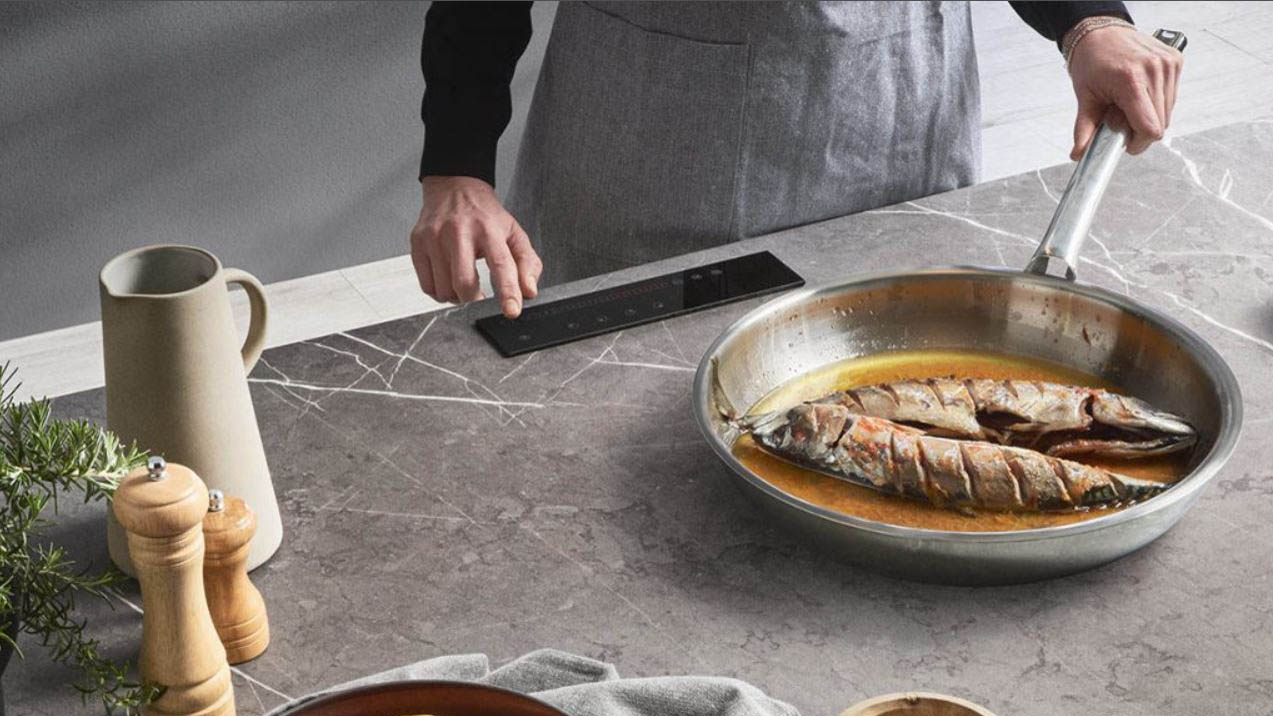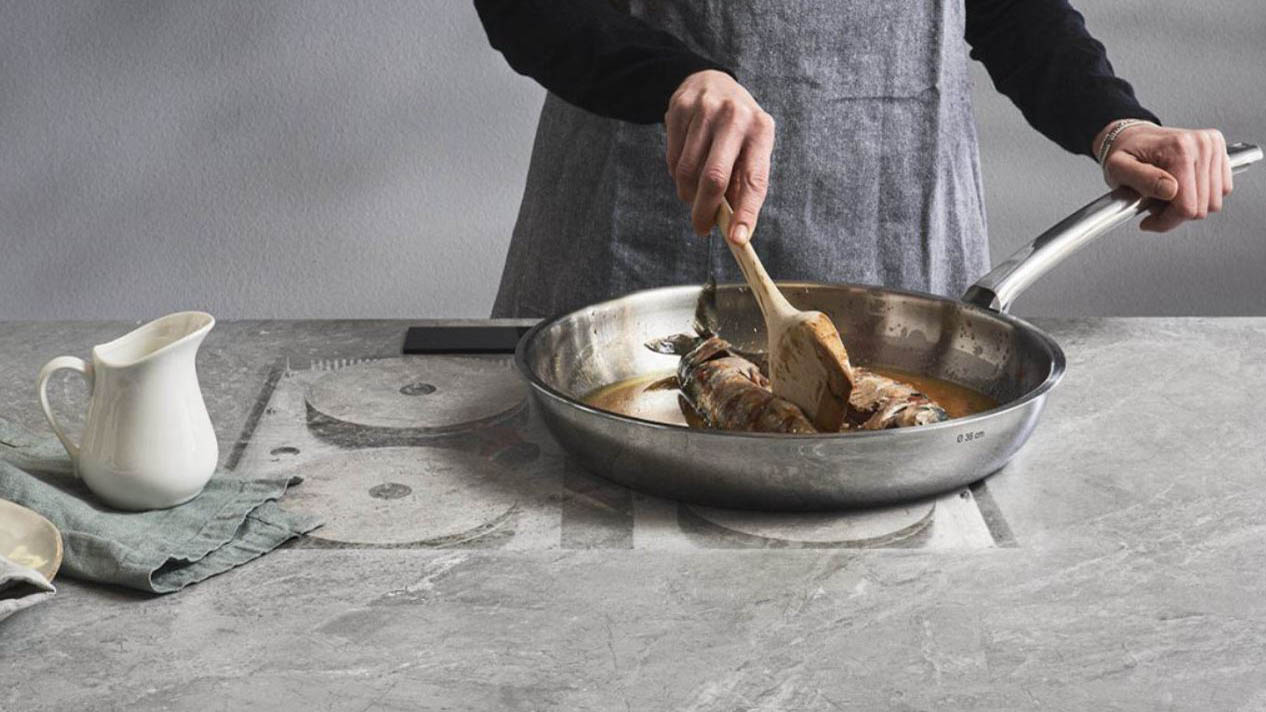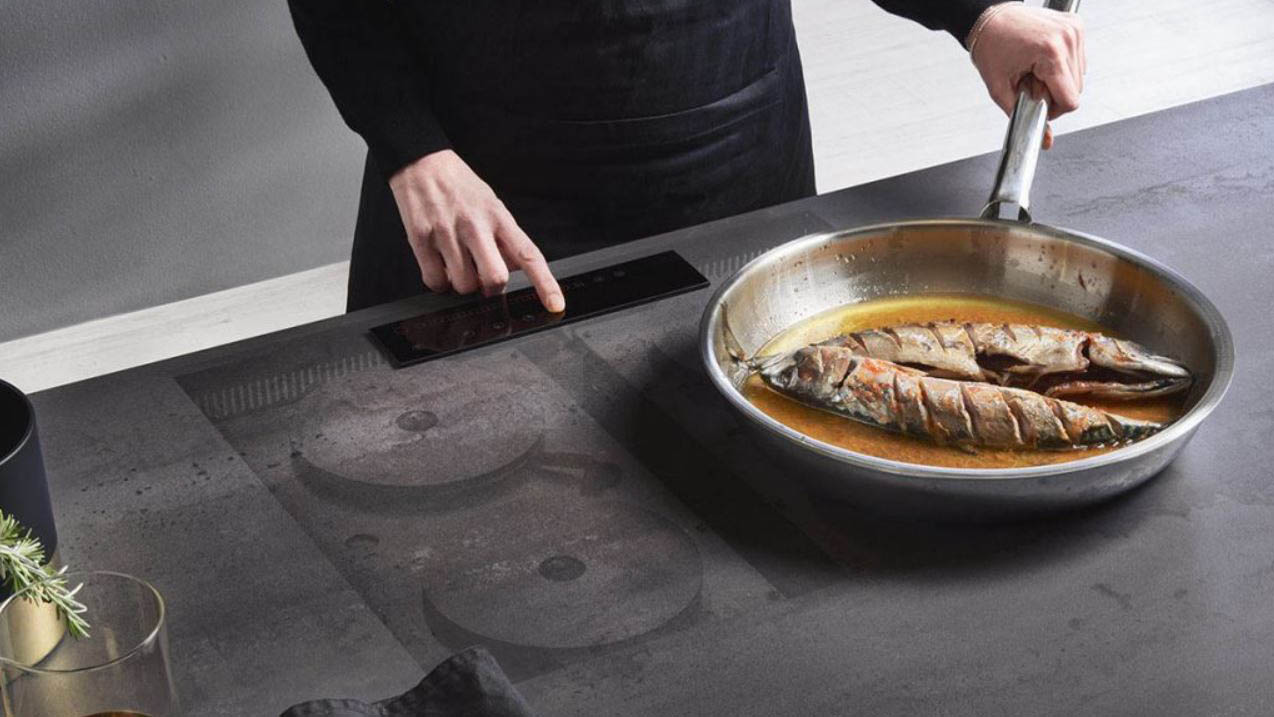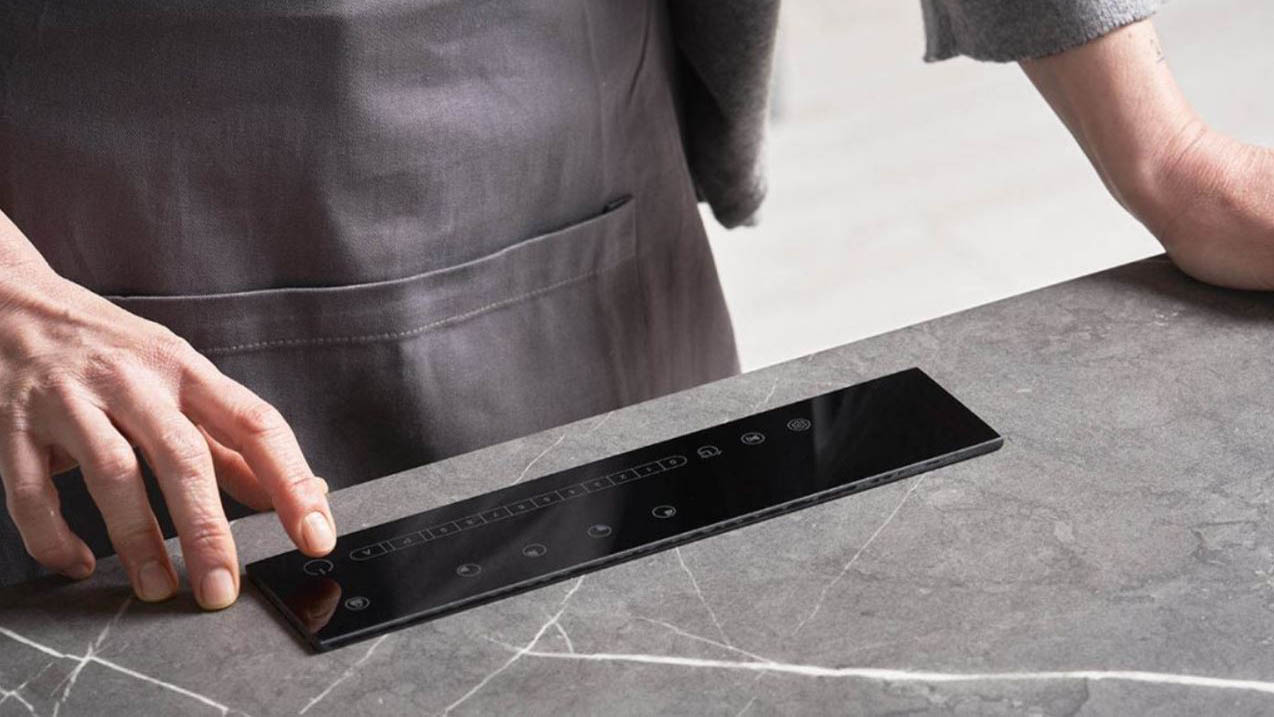Invisible stovetops look like the next big thing — should you get one?
Invisible stovetops could be the future of cooking

We all love having the latest innovations in our kitchen, whether it’s smart connectivity in a dishwasher or a refrigerator that helps you with your grocery list. But, one of the latest trends has taken many by surprise — ‘invisible stovetops’.
While it sounds like something only the kitchen of the future would have, it initially inspires as much curiosity as it does concern. After all, if a stovetop is invisible, what’s to stop you forgetting it’s there and accidentally switching it on or burning yourself? Here, we will break down exactly what an invisible stovetop is, as well as assess the benefits and any potential drawbacks.
What is an invisible stovetop?
As the name suggests, an invisible stovetop isn’t obvious to the eye. It’s fitted directly under your kitchen countertop to blend in with its surroundings. They’re typically sold with one, two or four burners, and require a specific countertop material to function — granite or porcelain.
Invisible stovetops use induction burners to heat, which gives you the instant response you’d expect from gas, combined with the ease of cleaning you get from ceramic. Induction burners use an electromagnetic field to heat up magnetised pots and pans. That means only the pan will heat, rather than the surface itself. It also means it will only work when it detects a pan on top, which is an added safety feature.

Invisacook is the predominant name behind this technology, and you can purchase it through a listed dealer. Many kitchen designers will incorporate invisible stovetops into their plans as well.
What are the benefits of invisible stovetops?
1. Saves space — First of all, the big plus point of invisible stovetops is that they save space. By incorporating a stove into your counter, the surface becomes multifunctional. This is particularly ideal if you’re tight for space in your kitchen.
2. Improves aesthetics — Secondly, an invisible stovetop does improve the overall look of your kitchen. It will streamline the surfaces and remove the eyesore of a black stove. The finish of the required countertop material also looks premium, whether granite or porcelain. So there’s no doubt that it’s a pretty addition.
Get instant access to breaking news, the hottest reviews, great deals and helpful tips.
3. Upgrades your stove — If you’re already using a ceramic stove, induction can be a nice step up. Induction is more responsive than ceramic, as well as faster and more energy efficient. The induction method is ultimately safer as well because it only heats the pan rather than the whole surface and won’t heat without contact.

4. Easier to clean than gas — If you’re thinking of swapping from gas to induction, there’s benefits to be had here as well. Gas stoves can be a nightmare to clean if you don’t know how to clean cast iron stove grates. Whereas, induction offers a flat, plain surface to wipe down. Induction can also offer the same precision in cooking that users have come to expect from gas stoves. If you’re making the change, remember you will need to hire an electrician to cap the existing gas line.
5. Wi-Fi connectivity — Invisacook’s stoves also come with Wi-Fi connectivity, which adds an element of safety to its design. You can check whether the stove is switched off via the app, or pre-heat the appropriate pans before cooking.
What are the drawbacks of invisible stovetops?
1. Will still need cleaning — While the surface will not be black, which makes marks less obvious, it will still need to be cleaned regularly to remove burnt residue.
2. Could you forget it’s there? — In terms of safety, you might be thinking — could I accidentally switch it on? This seems unlikely considering there’s still a dedicated control panel which stands out, as it does on a standard stove. Being induction, the stovetop also won’t activate unless it detects a compatible pan on top.
Another advantage of induction is that the surface will cool down very quickly after use, because only the pan is heated rather than the counter. Having said that, the pan itself will still transfer some heat to the surface, which your household would need to be aware of immediately after use.

3. Expensive — As you might have guessed, this tech wont come cheap. The final cost will depend not only on the size of stove you choose, but potentially on the extent of the countertop you need to be installed. Invisible stovetops unfortunately won’t work with just any surface, so this can soon mount up the price.
4. Needs compatible cookware — Because these stoves use induction to heat, the cookware needs to be magnetized to be compatible. That means certain traditional cookware is off the table, including cast iron, glass and copper. Most induction pans will feature a symbol on the base which shows four loops of wire.
Invisacook also advises that you use the invisamat or pan risers to protect the surface from heat damage after continued use.
Should you buy an invisible stovetop?
Ultimately, this decision depends on how much you value your space and aesthetics, as well as how deep your pockets are. This is indeed an innovation you’d expect to find in the kitchen of the future, but it could require a considerable amount of effort and investment to install.
Personally, I’d love to have it in my kitchen, but I don’t think I could warrant tearing everything out for the sake of added convenience. But, who knows. If you love the latest tech and you’re planning on remodelling your kitchen anyway, or you happen to have the right countertop material, an invisible stovetop might be in your best interest.
Want to find our more about induction cooking? Find out three things our homes writer, Camilla Sharman, discovered when she used an induction cooktop for the first time and 5 things to consider before buying an induction stovetop.

Katie Mortram used to be a Homes Editor for Tom's Guide, where she oversaw everything from kitchen appliances to gardening tools, as well as smart home tech. Specializing in providing expert advice for cleaning and home manintenance, she now works as Household Advice Editor for Good Housekeeping.
 Club Benefits
Club Benefits





